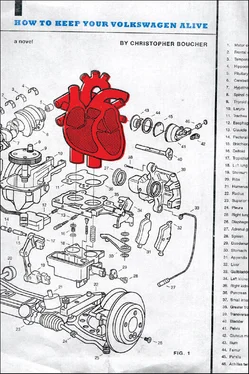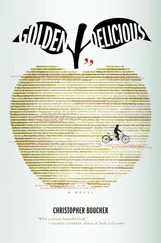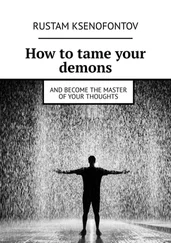The VW, meanwhile, went to sit by the stage, and soon enough he’d started laughing and drinking with a Kandinsky Print — a regular image at the Castaway. She was chatting casually with him, her feet on the chair and a drink in her hand, but her composition twinkled in a way that told me she had something more in mind. I predicted that the two of them would soon disappear.
Then I stopped paying attention to the VW, though, because I began talking with an old vice — she’d asked me about the Volkswagen and I started telling her stories. I told her about his health, how he was sick all the time, and then about his mother, how she’d left me to raise the VW by myself. I suppose I mentioned this so the vice would have pity on me, and maybe generate a little faith for me, but when I mentioned the Lady from the Land of the Beans the vice slapped the bar with her hand.
“You’re kidding me,” she said. “She doesn’t help at all?”
“She’s hundreds of miles away!” I said.
Her face was gritty, scratched. “How can she not want any involvement in her son’s life?”
“Well, the VW is in touch with her — they do speak about once a week on the phone.”
The vice was quiet as she registered this. Then she said, “Oh.”
“And he spent a week last summer with her in the Land of the Beans.”
“He did?” the vice asked.
“Sure.”
“Well why didn’t you tell me that?”
“I just did.”
“I mean before, when you were telling me all of those stories?”
I put my drink down — I was a little dizzy, too beered up for this conversation. “My point is—”
“The woman didn’t abandon him — it sounds like she does what she can.” The vice pointed to my power. “How many stories does that thing hold?”
“A lot — at least fifty,” I boasted.
“Are there stories about her in there?”
“Some,” I said defensively.
“About her role in the VW’s life?”
I looked down at the tangle of tape and dust.
“See?” she said.
“That doesn’t mean anything,” I said. “You’re making a big deal out of nothing.”
“It’s not nothing — I’m listening to what you’re saying, and I’m trusting you to be fair.”
“Fair?” I said. “Who said anything about being fair?”
And that’s when the VW tapped me on the shoulder. “Dad,” he hissed.
I turned to face him.
“Did you see that tree over there? The one with the note-coat?”
“Where?”
“Across the bar,” he said.
I looked.
The tree was sitting on a stool, drinking a beer. He had a moustache and a baseball hat. His vest was harmonizing with the music from the jukebox, but upon first glance he didn’t look to be any different from the firs and cherries that sometimes stumble-twigged into the bar.
I said, “I’m in the middle of a conversation, OK buddy?”
“But—”
“I thought you were chatting with the Kandinsky Print.”
“Dad—” the VW gasped.
“—we can’t get excited every time we see a tree, kiddo.”
“But that tree has blood on his chin,” the VW said.
Did he? I looked again. “No he doesn’t,” I said.
“Yes, he does,” the VW said.
“You’ve probably just had too much to drink.”
“I have not,” the VW said. “I’m telling you—”
“Go back to the print,” I said.
I went back to my conversation with the vice — I was still hoping that something might develop. A few minutes later, though, I saw the tree stand up and pay his time. Then he turned on his tree-heels, pushed open the door and walked out into the night.
The VW sped across the room and followed him out. Before I knew what was happening I was walking out too.
By the time I reached the dusty parking lot, the VW was standing in the middle of Route 5. “Dad — look!” he said, pointing north.
The whole night was ringing — the stars, the homes, the road itself.
I looked. All I saw was a yellow light in the distance.
“Isn’t that a farm?”
I looked again. Was that light in the shape of a window ? No. “I don’t think so — it’s a shed or something.”
“It might not be,” the VW said. “Come on — let’s follow it. It might be a pasture.”
“It’s not a pasture.”
“I think it is,” the VW said.
“We can’t, VW,” I said. “ You can’t.”
“I’m fine!”
“Let’s go home, alright?”
The VW shot me a ditto-face. “Dad,” the VW said. “Don’t you hear the music?”
And I did — I did hear music. But so what? I said, “We’ve both had too much MemoryBeer, is all.”
“I’m telling you, that tree was—”
“No it wasn’t.”
The VW threw down his hands. “I can’t believe you! Why can’t we—”
“Because I said no, OK? No.”
The VW shook his head in disgust. “You’re making a mistake,” he said.
“It wouldn’t be the first time,” I admitted.
The VW turned to face south, towards home. I got in and we started driving through the dark. After a moment the VW said, “You know what, Dad?”
“What?” I said.
“When I get older? I won’t be like you.”
“Oh really?” I said.
“That’s right. I won’t watch my whole life, every opportunity I’m given, go the other way.”
I was offended, then angry. I said, “VW, you are older.”
“I am not,” he said. “I’ve got my whole life ahead of me. My real life hasn’t even really begun.”
I shook my head. “That’s not true. You’re a nineteen seventy-one Volkswagen Beetle — a thirty-five year old car. You’re older than I am, for god’s sake.”
The VW seemed to mull this over for a second, as we vaulted through Hatfield and towards the Northampton line. Then he said, “You’re just trying to hurt my feelings. I’m not even three freaking years old.”
“It’s too late for you, VW, just like it’s too late for me,” I said.
“I don’t believe you,” the VW said. “I’m still fresh and new, with only a few dents on me, and I’m going to grow up to be a—”
“VW,” I said, “You’re already everything you’re ever going to be.”
STORIES AND AUTHORS IN CONTEXT
Later on, I came back to Northampton with the woman I was dating — a Scientist, who worked with infectious diseases — and we went down to the store called Faces to see about getting my name back. This was years in the future — my father was dead and the Crescent Street house just a Memory. When the Scientist and I turned onto Main Street we found it completely changed: Most of the stores had died and were just stiff corpses on the sidewalk, their doors swinging open to expose ribs and grey lungs. And the only cars on the road anymore were VeggieCars — rows of half-rotten jalopies lining either side of Main Street.
The Scientist and I had a complex relationship, which is to say that sometimes she was fond of me and other times she treated me like an orange traffic cone. She’d been nice enough to me to take me in after I’d lost my father’s house, but sometimes she gave me a look that meant I was to go away, to leave for several days.
It was then that I called the Memory of the Volkswagen, who barely spoke to me otherwise.
“What,” he’d say when he answered the phone.
Other times, the Scientist would let me stay out of pity, but under a particular arrangement: I slept in her living room or on the kitchen floor, priming in a sleeping bag, while she went out to the chemi-clubs to find young men and women. I would lie awake, listening to them faithing in the next room, moaning and lying.
Читать дальше












